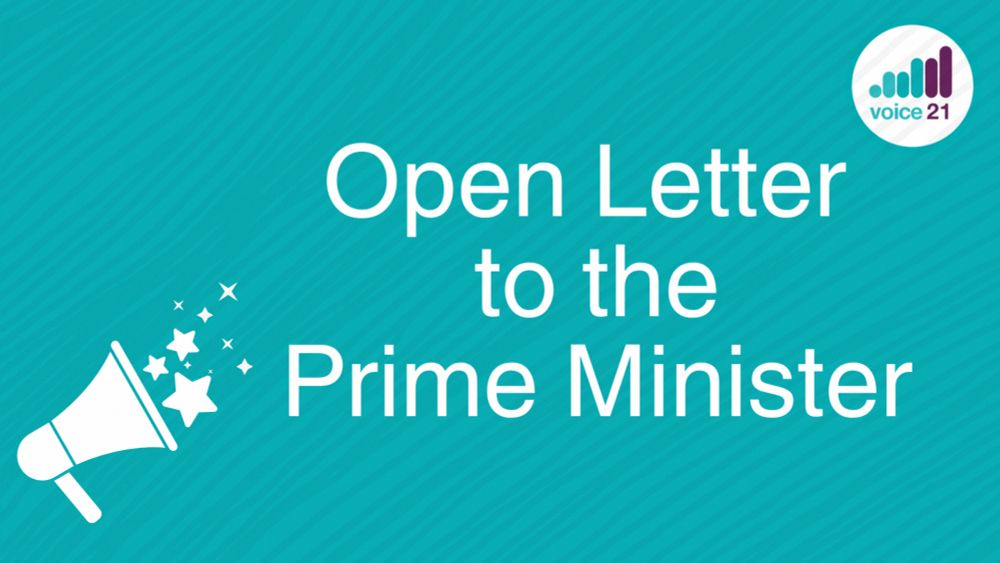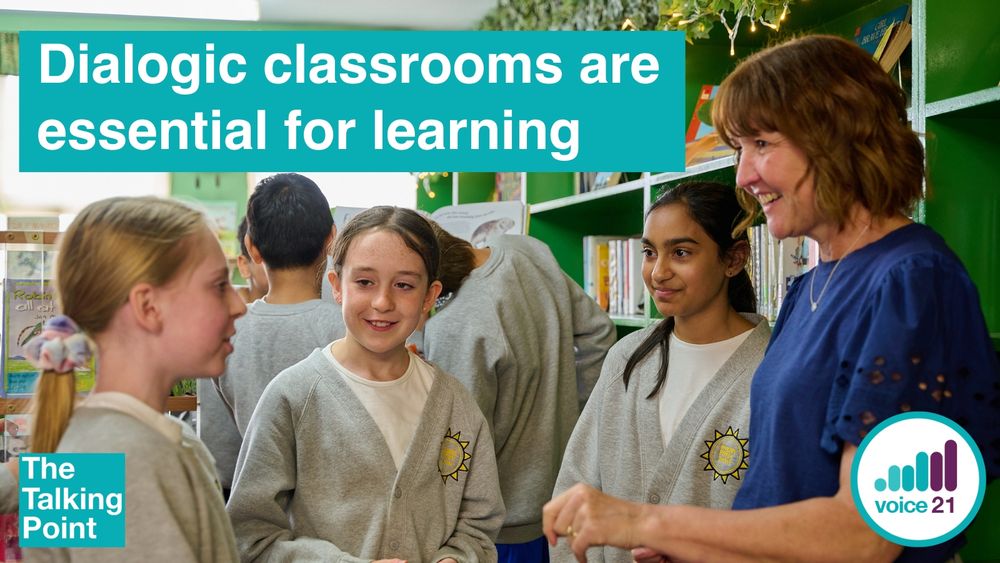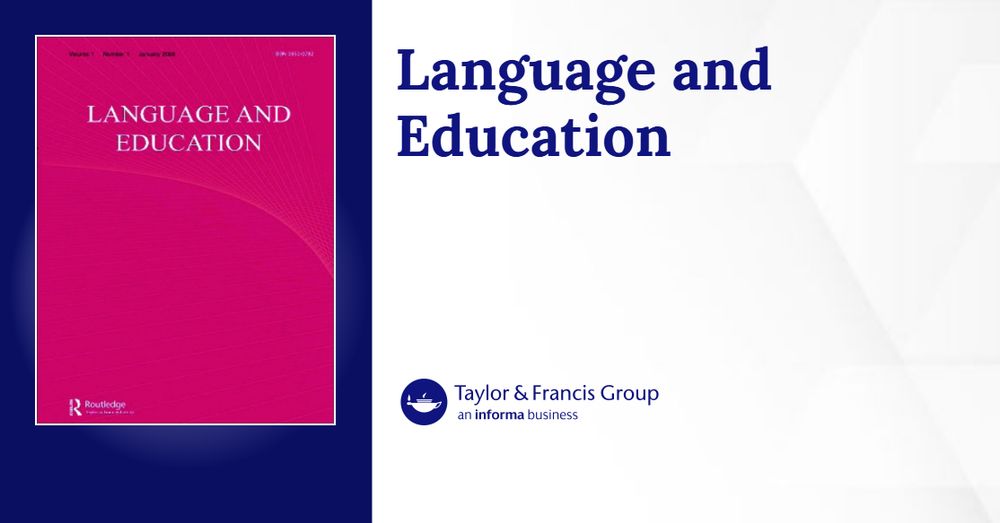Join me at The Speaking Summit 2026 on Fri 20th March. I’ll be part of a fantastic line-up of oracy experts, hosted by Voice21, gathering to explore how to take the government’s commitment to oracy forward. My session on ‘Overcoming Barriers to Dialogue’ is at 1.30pm. Hope to see you there!
16.02.2026 11:53 —
👍 7
🔁 5
💬 0
📌 0
Thanks so much Richard!
18.12.2025 13:35 —
👍 1
🔁 0
💬 0
📌 0
YouTube video by Leeds AHRI
Julia Snell Inaugural Lecture: Language Diversity and Social (In)justice
I'm happy to share a recording of my inaugural lecture on 'Language Diversity & Social (In)Justice' for anyone who missed it and is interested or who watched online and found that the slides weren't working (which has been fixed in the recording). Feel free to share: www.youtube.com/watch?v=SgEa...
09.12.2025 16:41 —
👍 7
🔁 1
💬 2
📌 0
Microsoft Forms
Are you a primary teacher/leader interesting in applying oracy education in a socially just and inclusive way? Join me for a workshop in January. Attendance is free & you will receive £30 as recognition of the expertise you bring. See link for more info & booking: forms.office.com/e/TBLZHgkWfn...
26.11.2025 09:48 —
👍 2
🔁 2
💬 0
📌 0

An introduction to dialogic teaching and learning - Voice 21
“Pupils who experience dialogic teaching and learning will develop their oral language skills, gain confidence and build relationships (by becoming more patient and attuned to others’ perspectives)".
Read more on dialogic teaching and learning here 👇
eu1.hubs.ly/H0pZBNx0
@snelljulia.bsky.social
25.11.2025 16:31 —
👍 5
🔁 2
💬 0
📌 1
Lots of talk about oracy since the Curriculum & Assessment review, so I’m resharing the Oracy Commission's Speaking Volumes publication. There’s a piece from me that outlines 3 ideas schools might want to think about in their discussions around oracy oracyeducationcommission.co.uk/wp-content/u...
19.11.2025 10:38 —
👍 0
🔁 0
💬 0
📌 0
Thanks Alex! And thanks for coming. It was lovely to see you there
12.11.2025 23:11 —
👍 1
🔁 0
💬 0
📌 0
Thank you for coming and bringing your fab students!
12.11.2025 23:07 —
👍 1
🔁 0
💬 0
📌 0
⭐We can’t wait for the inspiring @snelljulia.bsky.social's inaugural lecture “Language Diversity and Social (In)justice” taking place today.
An event to both learn from and undoubtedly to acknowledge Julia’s thought-leadership 👇
www.ticketsource.co.uk/university-o...
12.11.2025 09:49 —
👍 8
🔁 2
💬 0
📌 1
Yes! I’ll DM you the details
10.11.2025 15:36 —
👍 2
🔁 0
💬 0
📌 0
One week today! Join me for my inaugural lecture on 12th Nov. If you won’t be in Leeds, you can join online (dm me for Teams link)
05.11.2025 18:39 —
👍 4
🔁 1
💬 1
📌 0
Hi Elisabeth, I’ve added your email to the Teams invite, which hopefully you have received?
21.10.2025 10:12 —
👍 0
🔁 0
💬 1
📌 0
Hi, yes of course. I’m going to follow up on some organisational aspects this week, including the online set up, so I hope to have the link soon
14.10.2025 09:58 —
👍 1
🔁 0
💬 1
📌 0
If you won’t be in Leeds, we’re hoping to livestream and record. Drop me a message if you’d like the link
14.10.2025 09:14 —
👍 5
🔁 0
💬 6
📌 0

Professor Julia Snell's Inaugural Lecture: 'Language diversity and social (in)justice'
Drawing on research conducted over 20 years, Prof. Julia Snell interrogates the assumption that modifying children's speech will lead to educational success and social mobility.
Please join me on 12th November at my @universityofleeds.bsky.social professorial inaugural lecture on ‘Language Diversity and Social (In)justice’. More info here, including a link at the bottom to book a ticket (which is free but we need to track numbers): ahc.leeds.ac.uk/english/even...
14.10.2025 09:13 —
👍 41
🔁 23
💬 1
📌 4
Looking forward to connecting with teachers & colleagues today at this conference. @iancushing.bsky.social and I will be imagining futures of linguistic justice (tho I’ll be the Debby Downer talking about deficit perspectives first…)
13.09.2025 06:54 —
👍 1
🔁 1
💬 0
📌 0

Open Letter to the Prime Minister - Voice 21
📣 2 years ago, Sir Keir Starmer pledged to embed #oracy in the curriculum. Today, a coalition of parliamentarians, education experts & schools are calling on him to deliver on that pledge.
Read the letter here: voice21.org/open-letter/
23.07.2025 04:21 —
👍 20
🔁 9
💬 2
📌 16

According to @snelljulia.bsky.social:
“Pupils who experience dialogic teaching and learning will develop their oral language skills, gain confidence and build relationships (by becoming more patient and attuned to others’ perspectives)."
Read full article here 👇
voice21.org/voice-21-lau...
04.07.2025 11:06 —
👍 1
🔁 1
💬 1
📌 0
Thanks. Would love to hear your thoughts if you do!
03.07.2025 20:55 —
👍 1
🔁 0
💬 0
📌 0
Literacy in Primary Classrooms Conference
Join the NEU and UKLA for our Literacy in Primary Classrooms Conference!
me and @snelljulia.bsky.social are doing a joint keynote at this UKLA/NEU conference, talking about futures of linguistic justice and designing linguistically just schools 💜
www.eventbrite.co.uk/e/literacy-i...
03.07.2025 04:42 —
👍 19
🔁 7
💬 0
📌 0
@lahri.bsky.social
@universityofleeds.bsky.social
02.07.2025 18:56 —
👍 0
🔁 0
💬 0
📌 0
And thanks to @iancushing.bsky.social
for feedback on an early draft and for general encouragement, collegiality and inspiration!
02.07.2025 18:49 —
👍 1
🔁 0
💬 1
📌 0
It is crucial that we develop this approach in educational research and build an ethnographic evidence base that can challenge deficit thinking and better inform educational policy and decision making.
02.07.2025 18:49 —
👍 2
🔁 1
💬 1
📌 0
Linguistic ethnographic research is important in leading this change. It rejects universalizing assumptions about students and seeks to understand the complex and intricate ways in which local classroom practices connect with the wider institutional and sociopolitical order.
02.07.2025 18:49 —
👍 1
🔁 1
💬 1
📌 0
However, ideologies & educational reforms do not influence classroom practice in a linear ‘top down’ way; there is negotiation in classrooms between bottom-up meaning making processes & broader institutional and socio-political processes, which opens up possibilities for change.
02.07.2025 18:49 —
👍 1
🔁 1
💬 1
📌 0
These three mechanisms have relevance beyond the focal schools since they are underpinned by widespread beliefs/ideologies about underprivileged students and systemic pressures (e.g. frequent student testing, league tables) that influence classrooms internationally.
02.07.2025 18:49 —
👍 2
🔁 1
💬 1
📌 0
Yet, in peer-group conversations recorded on the margins of classroom activity, these students showed themselves to be mature and independent thinkers with a propensity for dialogue.
02.07.2025 18:49 —
👍 2
🔁 1
💬 1
📌 0
Student characteristics (e.g. laziness), behaviour (e.g. not listening), or (lack of) ability were invoked as reasons for their lack of understanding or missed learning opportunities, thus obscuring the need for institutional or systemic change.
02.07.2025 18:49 —
👍 2
🔁 1
💬 1
📌 0
Third, in line with neoliberal accountability logics, students at the Lower SES school were held responsible for education failures.
02.07.2025 18:49 —
👍 3
🔁 1
💬 1
📌 1





